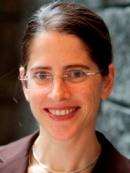Burnett Speaks on Puerto Rico's Role in Presidential Race
COLUMBIA LAW’S BURNETT SPEAKS ON PUERTO RICO’S ROLE IN
U.S. PRESIDENTIAL PRIMARIES AND ISLAND’S DESIRE FOR DECOLONIZATION’
Press contact:
James O’Neill 212-854-1584 Cell: 646-596-2935
June 3, 2008 (NEW YORK) – Columbia Law School Associate Professor Christina Duffy Burnett addressed basic facts and common myths in the debate over the future of Puerto Rico during a recent panel titled “Campaigning in the Colonies: Puerto Rico and the Presidential Primaries.”
Panelists addressed the status of Puerto Rico in the context of this year’s hard-fought Democratic race for the presidential nomination. Puerto Rico’s primary, held on June 1, received much attention this year, when it became clear that the island had the potential to serve as a “tie-breaker” between Hillary Clinton and Barack Obama. (As expected, Clinton came out ahead in voting on the island this past Sunday.)
“When you discuss Puerto Rico’s status, there are a couple of things you should know, and a couple of things you should know better than to believe,” Burnett said.
The panel was organized by the Puerto Rican Bar Association of Florida, and held at Nova Southeastern University in Fort Lauderdale, Florida, on May 31, 2008. Fellow panelists included the former Governor of Puerto Rico, Pedro Rosselló; former Florida legislator and now professor and radio talk show host Anthony Suárez; and Professor Ediberto Román of Florida International University.
Burnett noted that, since 1917, people born in Puerto Rico have been U.S. citizens by birth. Their citizenship is not “constitutional,” because it does not arise out of the Fourteenth Amendment. Instead, it is based on a statute, 8 U.S.C. § 1402. It is birthright citizenship: the only condition a person in Puerto Rico must meet in order to obtain U.S. citizenship is just that—to be born in Puerto Rico, Burnett said.
The four million U.S. citizens who live in Puerto Rico do not have any representation in the federal government, Burnett added. Although they are subject to U.S. sovereignty and to nearly all federal laws, they cannot vote for president, senators or representatives. All they have is a single, non-voting “Resident Commissioner” who sits in the House.
Burnett said a myth commonly found in the mainland media can be summarized as follows: “Puerto Ricans do not pay taxes, and this is why they don’t have the right to vote—and it’s a fair trade-off.” This is wrong on all counts, she noted.
While residents of Puerto Rico do not pay federal income taxes on income from Puerto Rican sources, federal employees in Puerto Rico do pay federal income taxes.In addition, Puerto Ricans pay plenty of other federal and local taxes.
Puerto Ricans pay payroll, Social Security, and other federal taxes, Burnett said. They also pay very high local taxes. “As for whether the exemption from federal income taxes is a fair trade-off for the lack federal voting rights—no way,” she said. “Puerto Rico receives far fewer federal benefits than it would if it were a state. That’s where the trade-off lies. The denial of the right to vote is simply an unfair and unacceptable denial of the right to have a voice in one’s government; it is not a fair trade-off for anything.”
Burnett also addressed another myth: that Puerto Ricans like what they have. “Wrong,” Burnett said. “Puerto Ricans have clearly expressed their wish for decolonization. The so-called ‘status debate’—the debate over Puerto Rico’s future status with respect to the United States—offers three options: statehood, independence, and an improved or enhanced version of the status quo, known as ‘enhanced commonwealth.’ In other words, not even the status quo party supports the status quo. Even they demand change.
“The Puerto Rican electorate may be divided over the status options,” Burnett said, “but it is unanimous on the need for change—that is, on the need for decolonization now.”
Burnett specializes in legal history. Her current scholarship examines the constitutional and international legal history of American empire, a topic that sheds light on issues of fundamental importance in the American polity, such as federalism, citizenship and nationhood.
Burnett served as a clerk for U.S. Supreme Court Justice Stephen G. Breyer and as a clerk for Judge Jose A. Cabranes of the U.S. Court of Appeals for the 2nd Circuit.
She received a M. Phil. in political thought and intellectual history from Cambridge University and her B.A. in history and Latin American studies from Princeton. She graduated from Yale Law School in 1998.
Burnett recently wrote an Op-Ed on Puerto Rico’s role in the race for the Democratic presidential nomination. The piece ran March 1 in the Wall Street Journal. To read the Op-Ed, click here (subscription required).
Columbia Law School, founded in 1858, stands at the forefront of legal education and of the law in a global society. Columbia Law School joins traditional strengths in international and comparative law, constitutional law, administrative law, business law and human rights law with pioneering work in the areas of intellectual property, digital technology, sexuality and gender, and criminal law.
